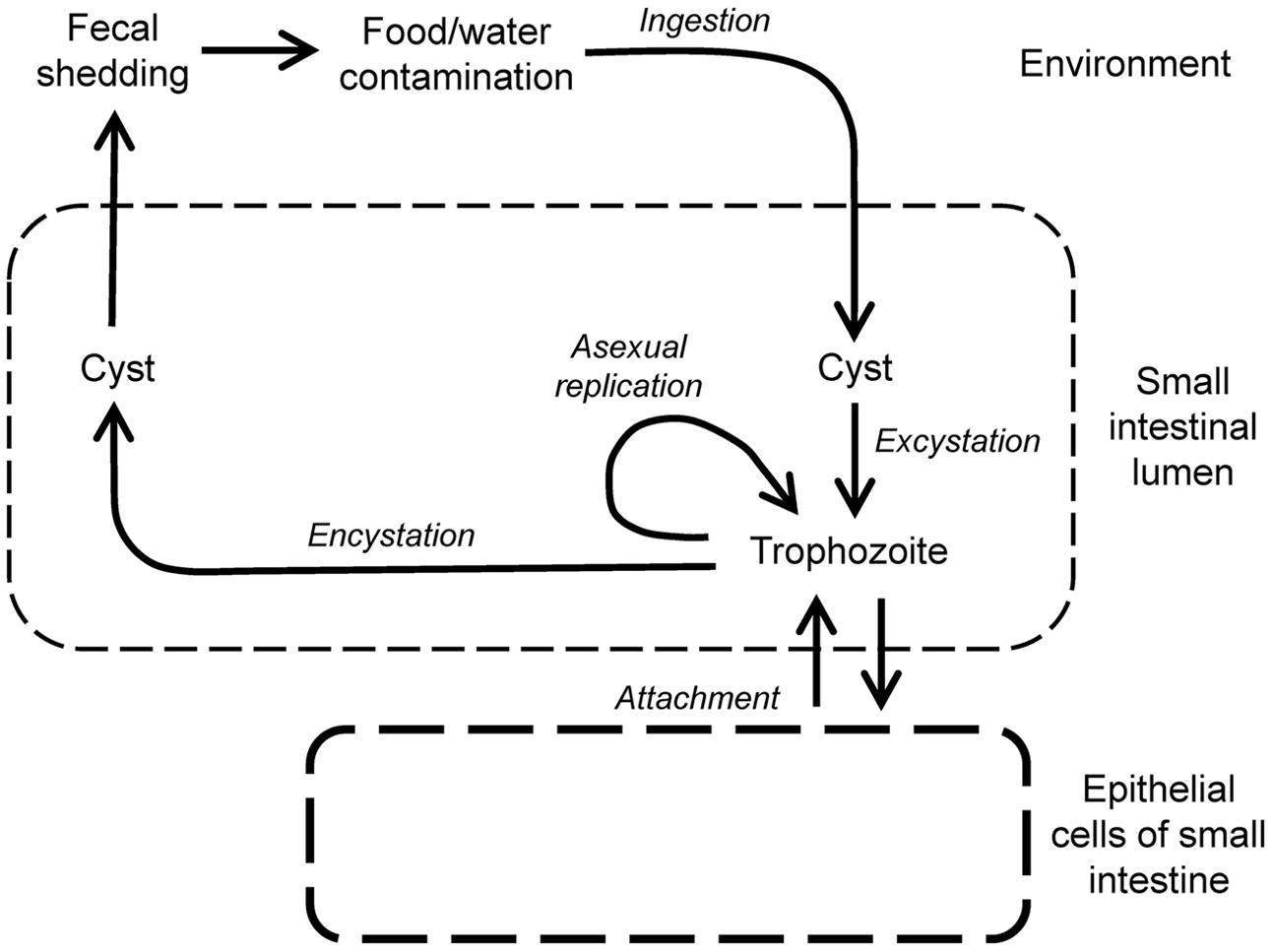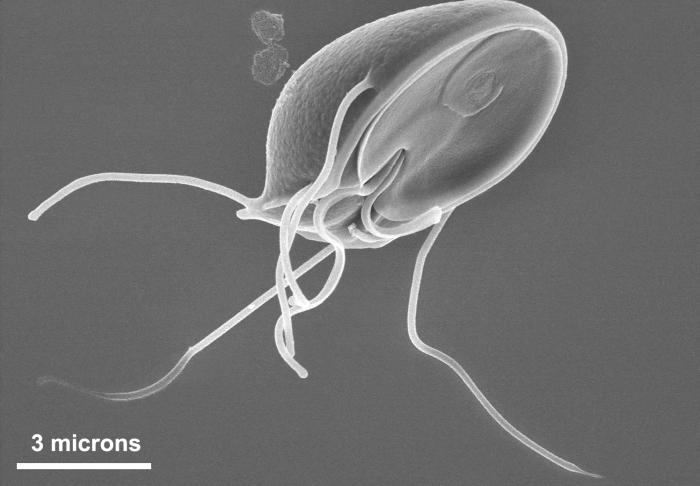Giardiasis, often abbreviated as GIA, is a common intestinal infection caused by a microscopic parasite. This condition affects millions of people worldwide and is particularly prevalent in areas with poor sanitation and limited access to clean water. Understanding the causes, symptoms, and treatments of this infection is crucial for preventing its spread and managing its effects on health. Below, we delve into the details of Giardiasis, exploring its origins, how it manifests in the body, and the available treatment options.

What is Giardiasis?
Giardiasis is an infection of the gastrointestinal tract caused by a parasite known as Giardia lamblia. This parasite exists in two forms: a dormant cyst and an active trophozoite. The cyst form is highly resilient and can survive outside the human body for extended periods, making it a significant contributor to the spread of the disease. Once ingested, the cyst transforms into the trophozoite form inside the intestines, where it attaches itself to the lining of the small intestine and begins to multiply.
This infection primarily affects the digestive system, leading to symptoms such as diarrhea, abdominal pain, and nausea. While many cases are mild and resolve on their own, some individuals may experience severe symptoms that require medical intervention. Giardiasis is particularly concerning in children, as prolonged infections can lead to malnutrition and developmental delays.
How Does Giardiasis Spread?
The transmission of Giardiasis occurs through the ingestion of contaminated food, water, or surfaces. The parasite thrives in environments with inadequate sanitation, making it a common issue in developing countries. However, outbreaks can also occur in developed nations due to contaminated recreational water sources, such as swimming pools and lakes.
- Contaminated Water: Drinking water from untreated or poorly treated sources is one of the primary ways Giardiasis spreads. Lakes, rivers, and even municipal water supplies can harbor the parasite if not adequately filtered or disinfected.
- Foodborne Transmission: Consuming food that has been washed or prepared with contaminated water can also lead to infection. Raw fruits and vegetables are particularly susceptible if not properly cleaned.
- Person-to-Person Contact: Close contact with infected individuals, especially in settings like daycare centers, can facilitate the spread of the parasite. Poor hygiene practices, such as not washing hands after using the restroom, contribute significantly to transmission.
- Animal-to-Human Transmission: Animals, particularly domestic pets and livestock, can carry the parasite and pass it to humans through direct contact or environmental contamination.
Symptoms of Giardiasis
The symptoms of Giardiasis can vary widely, ranging from mild discomfort to severe gastrointestinal distress. Some individuals may remain asymptomatic despite being infected, while others may experience debilitating symptoms that interfere with daily life. The onset of symptoms typically occurs one to three weeks after exposure and can last for several weeks if left untreated.
Common Symptoms
- Diarrhea: Watery, foul-smelling stools are one of the hallmark symptoms of Giardiasis. The diarrhea may be intermittent or persistent and can lead to dehydration if not managed properly.
- Abdominal Pain: Cramping and bloating are common complaints among those infected. The pain is often localized to the upper abdomen and may worsen after eating.
- Nausea and Vomiting: Many individuals experience feelings of nausea, and some may vomit, further contributing to dehydration and nutrient loss.
- Fatigue: The infection can cause extreme tiredness due to the body’s efforts to fight off the parasite and the resulting malabsorption of nutrients.
- Gas and Bloating: Excessive gas production and a feeling of fullness are frequent symptoms, often accompanied by a noticeable increase in flatulence.
- Weight Loss: Prolonged infections can lead to unintended weight loss as the body struggles to absorb fats and other essential nutrients.
Less Common Symptoms
In rare cases, Giardiasis can lead to more severe complications, particularly in individuals with weakened immune systems. These complications may include:
- Dehydration: Persistent diarrhea and vomiting can result in significant fluid loss, requiring medical attention to restore electrolyte balance.
- Lactose Intolerance: Some individuals develop temporary lactose intolerance following a Giardiasis infection, as the parasite damages the intestinal lining responsible for digesting lactose.
- Joint Pain: A small percentage of infected individuals report joint pain and stiffness, though the exact cause of this symptom remains unclear.
Causes of Giardiasis
Understanding the root causes of Giardiasis is essential for prevention and control. The primary culprit behind this infection is the Giardia lamblia parasite, which thrives in environments with poor sanitation and hygiene. Several factors contribute to the prevalence and spread of this parasite.
Poor Sanitation Practices
Inadequate sanitation infrastructure is a significant driver of Giardiasis outbreaks. In regions where access to clean water and proper waste disposal systems is limited, the parasite can easily contaminate communal water sources. Open defecation and improper sewage management further exacerbate the problem, creating ideal conditions for the parasite to thrive.
Recreational Water Exposure
Swimming in contaminated lakes, rivers, or poorly maintained swimming pools can expose individuals to the parasite. Even chlorinated pools may not always eliminate the cysts, especially if the water is not properly maintained. Children are particularly vulnerable, as they are more likely to swallow water while playing.
Travel to Endemic Areas
Travelers visiting regions where Giardiasis is endemic are at higher risk of contracting the infection. Consuming local water or food without taking precautions, such as boiling or filtering, increases the likelihood of exposure. Backpackers, hikers, and campers who rely on natural water sources are also at risk if they fail to treat the water before consumption.
Treatment Options for Giardiasis
While many cases of Giardiasis resolve on their own, medical treatment is often necessary to alleviate symptoms and prevent complications. The treatment approach depends on the severity of the infection and the individual’s overall health. Below are the most common treatment options available.
Medications
Antiparasitic medications are the cornerstone of Giardiasis treatment. These drugs target the parasite directly, helping to eliminate it from the body. The most commonly prescribed medications include:
- Metronidazole: This is the first-line treatment for Giardiasis and is highly effective in eradicating the parasite. It is typically taken orally over a course of five to seven days.
- Tinidazole: Similar to metronidazole, tinidazole is a single-dose medication that offers convenience and high efficacy. It is often preferred for its shorter treatment duration.
- Nitazoxanide: This medication is particularly useful for treating children and individuals who cannot tolerate metronidazole. It is available in liquid form, making it easier to administer to younger patients.
Supportive Care
In addition to antiparasitic medications, supportive care is essential for managing symptoms and preventing complications. This includes:
- Hydration: Staying hydrated is critical, especially for individuals experiencing diarrhea and vomiting. Oral rehydration solutions can help replenish lost fluids and electrolytes.
- Dietary Adjustments: Consuming bland, easy-to-digest foods can help ease gastrointestinal discomfort. Avoiding fatty, spicy, or sugary foods is recommended during recovery.
- Rest: Allowing the body adequate time to heal is important. Resting helps conserve energy and supports the immune system in fighting off the infection.
Preventing Recurrence
To prevent reinfection or spreading the parasite to others, certain precautions should be taken:
- Proper Hygiene: Washing hands thoroughly with soap and water after using the restroom and before handling food is crucial.
- Safe Water Practices: Boiling or filtering water before consumption, especially when traveling or camping, can reduce the risk of exposure.
- Cleaning Contaminated Surfaces: Regularly disinfecting surfaces, particularly in households with infected individuals, can help prevent the spread of the parasite.
When to Seek Medical Attention
While many cases of Giardiasis are mild and self-limiting, certain situations warrant immediate medical attention. If symptoms persist for more than a week, worsen over time, or are accompanied by signs of dehydration, such as dizziness, rapid heartbeat, or dark urine, it is essential to consult a healthcare provider. Additionally, individuals with weakened immune systems, such as those with HIV/AIDS or undergoing chemotherapy, should seek medical care promptly to prevent complications.
Early diagnosis and treatment are key to managing Giardiasis effectively. Healthcare providers may perform stool tests to confirm the presence of the parasite and rule out other potential causes of gastrointestinal symptoms. In some cases, additional diagnostic tests, such as endoscopy or imaging studies, may be necessary to assess the extent of intestinal damage.





